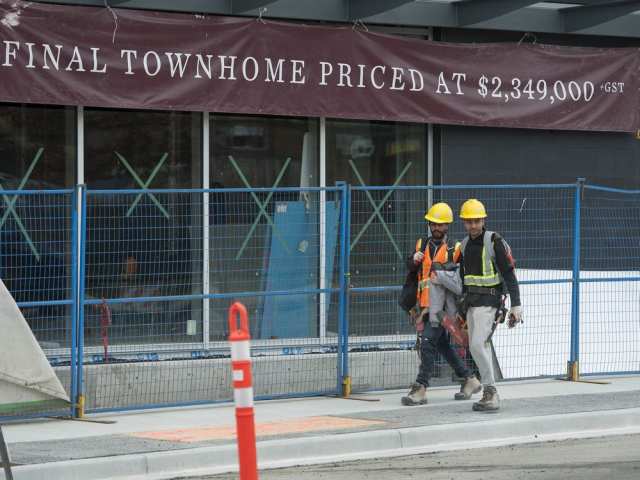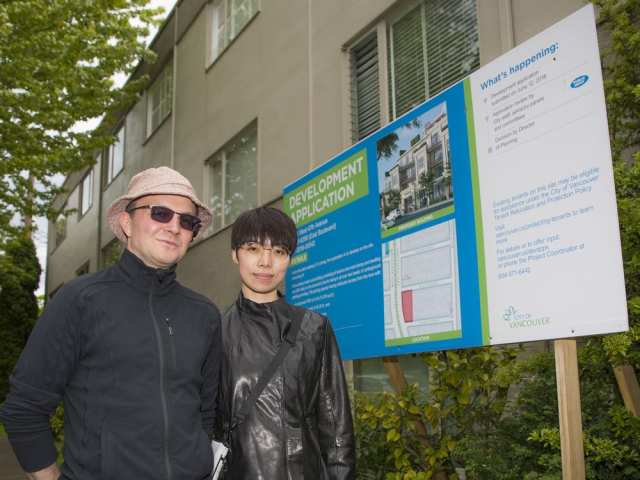Alleged Canada real estate tax cheat for Chinese buyers described in Vancouver legal action|Layla Yang
Line Today Staff
other
An alleged scheme to allow Vancouver’s mostly Chinese foreign buyers to avoid tax on real estate purchases has been revealed by the disintegration of a business partnership involving some of the Canadian city’s top property agents.
Under the supposed scheme, described in British Columbia Supreme Court legal action, buyers and sellers who were both based overseas would understate the amount being paid for a property and exchange only that portion in BC – thus reducing the buyer’s property transfer tax – while the remainder of the true price would change hands outside Canada.
If true, such an arrangement could also help buyers of Canadian real estate dodge China’s cash export limits.
The alleged technique is described in a response to a lawsuit over the collapse of a partnership between Layla Zi Ya Yang and fellow property agents Kathy Wan Jun Xu and Melissa Kam Nong Wu.
The trio founded Maxcel Westcoast Realty in 2017 – but Yang and other agents departed the firm in acrimony that is described in the legal action.
Maxcel’s lawyer on Thursday “strongly denied” the existence of the alleged scheme. All others involved in the legal action have also denied wrongdoing, and no claims of wrongdoing in the lawsuit, the responses or counterclaims have been proven in court.
Maxcel is suing Yang and others for their supposed “sabotage” of the company, via rival firm Dracco Pacific Realty, which was established by Yang’s sister, Ava Liu Yang, in November 2018.
The defendants are accused of poaching Maxcel’s agents and listings worth more than C$52 million (US$38 million), as well as breaching confidentiality and falsifying records.
“(The) Dracco Companies, in particular Dracco Pacific, (were) incorporated solely for the purpose of stealing Maxcel’s business assets and real estate agents, to the sum of at least 20 listings, and for the purpose of causing Maxcel to cease its operations,” says Maxcel’s lawsuit, lodged in December 2018.
The lawsuit claims Maxcel’s former managing broker Tim Teng Teng Xu worked with Layla Yang to undermine the firm. It says Tim Xu was fired on November 26 for failing to fulfil his duties, insubordination and falsifying records.
But a response to the lawsuit by Tim Xu, Yang and co-defendant Edward Yang Zhang says Tim Xu was fired for trying to blow the whistle on the alleged tax-cheating scheme.
“Maxcel dismissed Tim wrongfully, because he fulfilled his duty to instruct against participation in transactions using the Scheme,” the January 29 response to Maxcel’s lawsuit says.
Tim Xu and his co-defendants describe a November 23 meeting between him and the three Maxcel directors – Layla Wang, Kathy Xu and Melissa Wu – at which he says he warned against having anything to do with the scheme “to evade property transfer tax”.
Maxcel dismissed Tim wrongfully, because he fulfilled his duty to instruct against participation in transactions using the SchemeAn allegation in a response to a lawsuit lodged by Maxcel Westcoast Realty against Tim Xu and others
Under the supposed arrangement, the buyer and seller of a BC property would agree to understate the true price on transfer documents. “(The) buyer then pays the Altered Price on closing in British Columbia, but pays the difference between the Altered Price and the True Price outside Canada,” the response says.
Kathy Xu is accused in the response of telling Maxcel brokers “she had had three deals closed using the Scheme”, and that “the key of success” was that licensees for the buyer and the seller “must be able to trust each other”.
“Kathy and Melissa, who were on close terms, appeared to be offended by Tim at the November 23 meeting and refused to sign the meeting minutes,” the response says. Three days later he was fired.
The description of the scheme only says the transactions would be completed “outside Canada”. Maxcel caters largely to the city’s Chinese community, and 90 per cent of its brokers are ethnically Chinese.
A supposed copy of the minutes from the November 23 meeting, obtained by the South China Morning Post, describes the scheme involving “clients of Chinese descent”, and the transfer of funds between buyers’ and sellers’ bank accounts in China.
Some details in the document match the account of the alleged scheme in the response to the lawsuit, while other details are not mentioned in the legal submission.
China has an annual cash export limit of US$50,000 per person. A scheme such as the one described in the lawsuit could allow Chinese buyers to reduce risks associated with breaching the limit.
Maxcel says it once had 101 real estate agents and team leaders, and that the firm’s monthly share of the commissions it split with agents peaked at C$70,210 (US$51,900) in July 2018.
But the firm’s website now lists 52 agents, and the lawsuit says Maxcel’s share of commissions fell to C$19,804 (US$14,640) in November, blaming the decline on the “concerted efforts of the defendants”.
The response says the decline “if any” was caused by Maxcel’s mismanagement and a slump in the Vancouver real estate market.
Dracco and Ava Yang are also defendants in the original lawsuit, but filed a separate response denying wrongdoing. All parties reject the others’ claims for damages and other relief measures.
Layla Yang is one of Vancouver’s most well-known property agents. Kathy Xu and Melissa Wu market themselves as being among the top 1 per cent of property agents in the city, as does Layla Yang.
Glen Forrester, Maxcel’s lawyer, said the allegations about the tax scheme were “frivolous and vexatious and are strongly denied”. The Post asked lawyers for Tim Xu, Layla and Ava Yang, Zhang, and Dracco for comment on the lawsuit but they have not responded.
No trial date has been set.
According to data released by the Canada Mortgage Housing Corporation in March and analysed by academic Andy Yan, about C$34 billion (US$25 billion) worth of residential real estate in Vancouver has at least one foreign owner, representing 10 per cent of the total value of residential property in the city.
In a brief period of data collection in mid-2016, Chinese citizens made up 77 per cent of all foreign buyers in BC.
After the release of the data, the centre-right BC Liberal government introduced a 15 per cent tax on foreign buyers in Vancouver; the subsequent left-leaning NDP government increased it to 20 per cent and extended the areas affected by the tax.
This story has been updated to include comment from Glen Forrester, Maxcel’s lawer
Copyright (c) 2019. South China Morning Post Publishers Ltd. All rights reserved.






